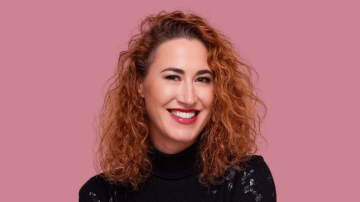Channel Eye has joined forces with Jo Buchanan, the Founder of TwitTwooYou, a business growth strategic consultancy centred on getting brands noticed.
In this article, Jo advises us to “choose our channel” and consider which social media platform to use to promote your business.
We all know that to successfully promote your business today, you need to be on social media. You also need to post regularly with relevant content, that your audience wants to digest.
Marketing has changed massively over the years. Gone are the days when you could print several thousand pamphlets and get Jersey Post to post them through the letterboxes of your chosen parishes or businesses. Consumers want to digest information online, which is why marketers have had to adapt the way they market.
Since the dawn of social media, businesses have sought to find innovative and unique ways to get noticed by posting all about their business, products, services and people in what is already a hugely crowded market.
It’s hard for businesses to get noticed and even harder to convert audiences into leads, potential customers and even sales
Often that try-hard approach is to the detriment of the brand. They continually post, or post sporadically, with content that often has no rhyme or reason and is certainly not strategically aligned. “I’ve just got to post something, anything”, they say.
But that’s where they are going wrong.
You see before you even establish a social media presence you need to first figure out what it is you want to say and why you’re even doing it in the first place.

Work out what you want to achieve from social media. Is it more sales, more customers, a larger audience or community or to become more attractive as a potential employer?
What do you want to be known for? How would you like the audience to describe you to their friends or peers? What are you aiming to get out of posting on social media? It might be that you want to raise awareness of your brand and redirect users to your website to make a sale. Or maybe, you are looking to raise awareness of your employer brand, to attract new people to work for you?
Either way, that strategic intent is something you should work out first before you even build your social media page. And share that strategic intent with everyone who participates in your social media efforts.
When you attend your planning meetings to brainstorm ideas for your content calendar, make sure everyone is fully aware of your strategic aims so that you don’t go off on a tangent and start posting random, inconsistent content that makes your brand appear muddled and confusing.
And then there’s the question of where to post. Which social media platforms should you be hanging out on?
So many businesses have pages on all the most popular social media platforms. Think Facebook, Instagram, Twitter, LinkedIn, Snapchat, TikTok – the options go on. If you are one of these businesses you are likely wasting your time as you don’t need to be on all of them. It’s quality over quantity. Hang out where you get the most engagement. Hang out where your potential customers play.
All social media platforms offer analytics to help you identify which posts are generating the most engagement. You should review your posts and attempt to classify them so you can then work out what types of posts generate the most attention.
For example, is it your people’s stories where you share new starters or exam success? Or maybe it’s your social posts, where you share photos of a recent team building day. When you know what types of posts garner the most engagement, do more of those posts and less of the ones that don’t generate many likes, comments or shares.
So which social media channels are the best ones to hang out on?
This is a question I get asked a lot by clients and there isn’t a hard and fast answer to it. No one size fits all approach can be taken, it really depends on the nature of your business, your brand positioning and your customer demographic.
This article is actually a two-part series, highlighting when it is good to feature and post on Facebook, Instagram, LinkedIn, TikTok and Twitter. As you would expect, there is a lot to cover, so to make the articles easier to digest, we’re splitting them into two, covering Facebook and Instagram in our first. Our second article, which will feature in the next Marketing Masterclass series, will cover when it is good to use LinkedIn, TikTok and Twitter.
So let’s begin with Facebook…

When Facebook is the best channel
Facebook is the Granddaddy of social media platforms and has the largest followership among all the other channels. And yet despite that, it’s not for everyone. If your business is B2B then it might not be the best channel for you.
Equally, Facebook is most served by people aged 25 – 55. So if your typical customer demographic is under 25 say, your people are not hanging out on this channel so there is no point in posting on it.
It’s a great platform to use if you target consumers over the age of 25 and it also offers you a lot of tools to get your message seen, such as boosting posts and creating bespoke advertising campaigns.
What’s more, being as Facebook bought out Instagram in 2012 and the fact it has Messenger too, it means you can also copy all your content instantly from Facebook to Instagram and you can also add Messenger features to your campaigns too, getting you closers to your customers.

When Instagram is the best channel
Instagram is only for the Millenials, right? Well, in essence, Instagram did begin as a young person hang-out, where you’d find beautifully curated photos of Influencers posting about their smashed avo or latest yoga pose, but now it’s so much more blended with many businesses achieving some significant growth through this channel.
Instagram is above all a photo platform where you post and share beautiful pictorial content, so if your business sells a product that you can showcase, then it’s a great channel. However don’t forget social media isn’t just about raising your brand’s awareness of your product or service, it’s also a great place to promote your people too. So if you’re hosting a fun team-building day out with lots of action, capture that and post it here.
But remember your ideal audience demographic. Instagram predominantly attracts users from the ages of 25-34 years old. So if your target customer is either older or younger, think twice before creating a profile.

So here is the first part of a two-part series. We’ve taken you on a whistle-stop tour of two of the biggest players on social media. Remember it’s quality over quantity. What’s more, don’t forget to use hashtags. Whatever channel you choose to post on, hashtags offer a great way for your content to be viewed and discovered by people who don’t yet follow you.
This is a sponsored article.














